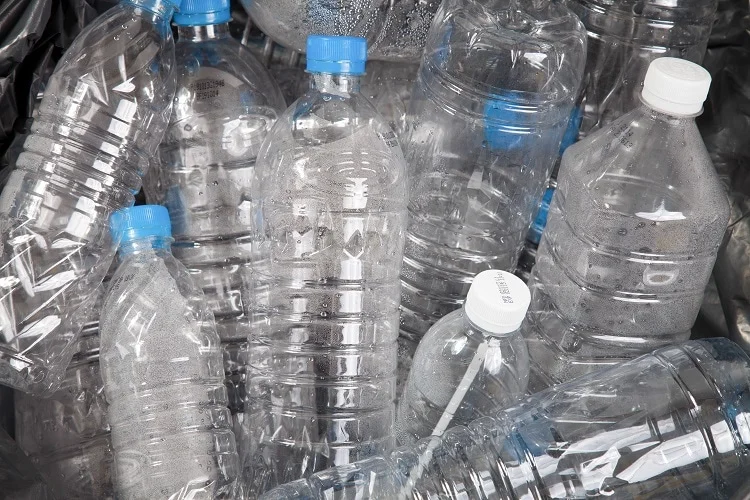Wellhealthorganic.com know why not to reuse plastic water bottles know its reason in Hindi: Careful consideration is crucial when selecting bottled drinking water, not only for the water quality but also for the plastic container that safeguards your vital beverage. Researchers assert that plastic water bottles harbor certain detrimental chemicals that may infiltrate the water, posing a significant health risk. The likelihood of illness escalates with repeated use of these plastic containers. Here are compelling reasons to abstain from reusing plastic water bottles:
Proliferation of Bacteria
Plastic water bottles consistently pose a risk of bacterial contamination if not routinely cleansed. Researchers have pinpointed that reusing unwashed bottles creates an environment conducive to bacterial overgrowth. Upon entering the body, these bacteria may induce various ailments such as diarrhea and stomach pain.
Also Read : Wellhealthorganic.Com Simple Ways To Improve Digestive System In Hindi
Presence of Chemicals like PET
Even esteemed companies employ Polyethylene Terephthalate (PET), a chemical found in plastic bottles that harbors the carcinogenic compound diethylhydroxylamine (DEHA). Experts emphasize that bottles containing PET are deemed safer for single use. However, reusing such bottles intensifies the leakage of DEHA from the plastic. If this chemical infiltrates the body through water consumption, it may lead to a spectrum of health issues. DHEA commonly causes eye and skin irritation, but prolonged exposure to these agents may culminate in cancer.
Presence of Chemicals like BPA
Bisphenol A (BPA), a chemical prevalent in plastic items like bottles, containers, and even toys, exposes individuals to its effects as they interact with these objects. The initial consumption of water from a plastic bottle entails limited exposure to BPA. However, upon reuse, more BPA leaches from the plastic, mingling with the water and entering our bodies upon consumption. This can give rise to an array of problems such as altered hormonal levels, heart problems, neurological disorders, and even cancer.
To embrace a healthier lifestyle, it is imperative to break the habit of reusing plastic water bottles. Instead, consider alternatives like glass bottles, paper-based tetra packs, and steel containers, which pose fewer risks to the body.
Also Read : Well Health Tips In Hindi Wellhealth
Conclusion
In conclusion Wellhealthorganic.com know why not to reuse plastic water bottles know its reason in Hindi, the practice of reusing plastic water bottles poses significant health risks due to bacterial contamination and the release of harmful chemicals such as DEHA and BPA. To safeguard our well-being, it is advisable to abandon the habit of reusing plastic bottles and opt for safer alternatives like glass, paper-based tetra packs, or steel containers for a healthier lifestyle.
FAQs About Wellhealthorganic.com know why not to reuse plastic water bottles know its reason in Hindi
Q1: Can I safely reuse plastic water bottles?
A1: Reusing plastic water bottles may pose health risks due to bacterial overgrowth and the potential leaching of harmful chemicals like DEHA and BPA. It is advisable to choose alternative materials for repeated use.
Q2: What health issues can arise from reusing plastic bottles?
A2: Reusing plastic bottles increases the risk of bacterial contamination, gastrointestinal problems, and exposure to carcinogenic compounds such as DEHA and BPA. Prolonged exposure to these substances may lead to serious health issues, including cancer.
Q3: Why are glass bottles, paper (tetra packs), and steel containers recommended?
A3: These alternatives are considered safer because they do not pose the same risks as plastic bottles. Glass, paper, and steel containers are less likely to harbor bacteria and do not contain harmful chemicals that may leach into the contents.
Q4: What is DEHA, and why is it a concern in plastic bottles?
A4: Diethylhydroxylamine (DEHA) is a carcinogenic compound found in plastic bottles, particularly those made with Polyethylene Terephthalate (PET). Reusing PET bottles can lead to increased leakage of DEHA into the water, posing health risks such as irritation and potential cancer development.
Q5: Are all plastic water bottles equally risky?
A5: Plastic water bottles, even from reputable brands, can pose risks due to the use of chemicals like PET and BPA. While some plastics are considered safer for single use, the cumulative risk of leaching increases with repeated use, making alternative materials a healthier choice.


